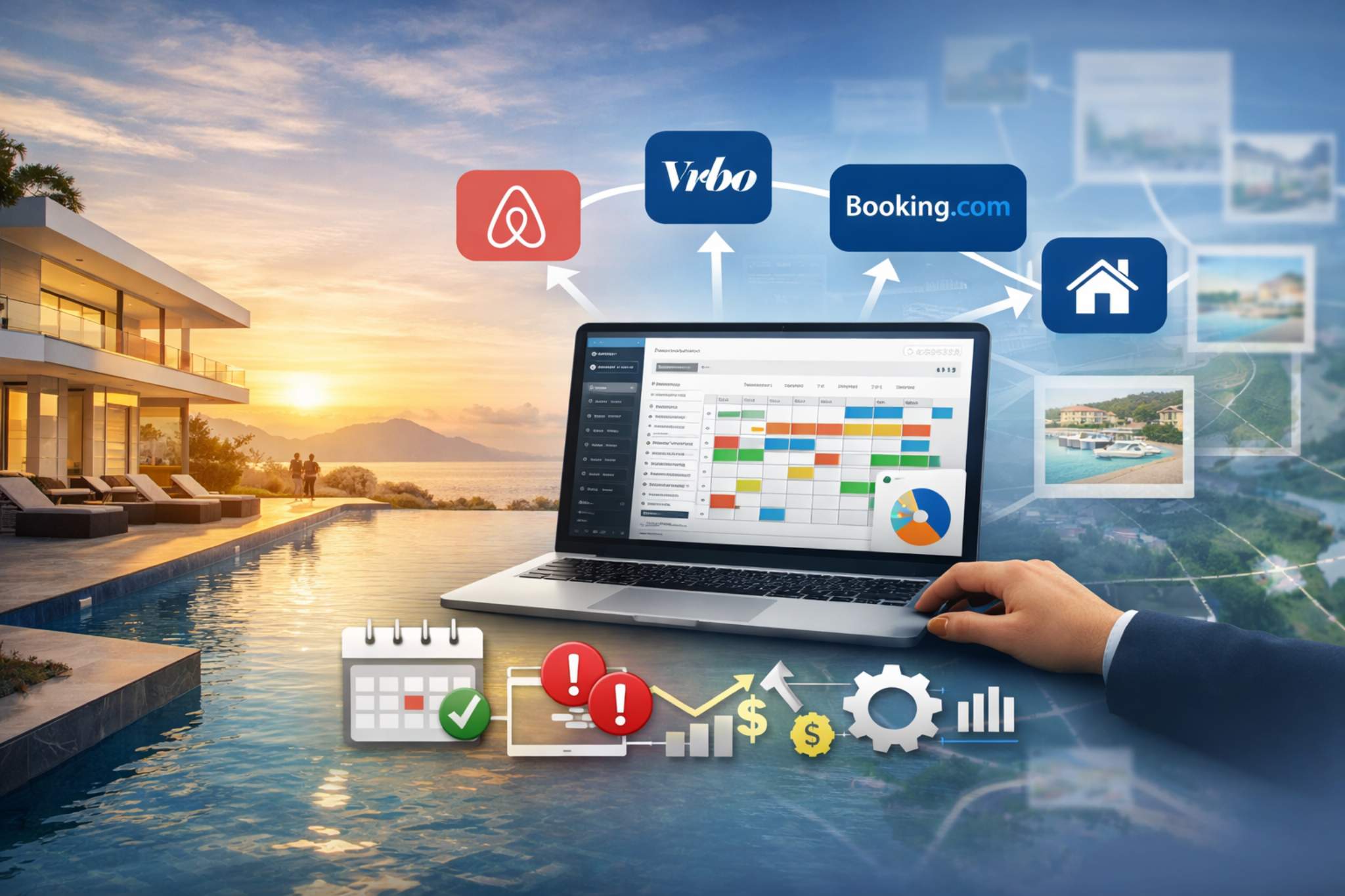Property managers continue to tack more and more responsibilities onto their job descriptions. The need for effective automation that will save them time and overhead cost is no longer a luxury, but a necessity.
Luckily, smart solutions are stepping in with advanced technology to tackle the biggest concern property managers have with efficiency and automation: security.
What is Smart Security?
Many buildings still use dated technology like key fobs and 2G-based alarm panels that haven’t changed much over the last 20 years. While these systems are still functional, they may not provide effective security or the reliability and convenience needed to simplify property management tasks.
Smart security refers to an interconnected setup that allows communication between devices to aid in a more secure property and flexibility for property managers. For example, integrated access control and visitor management systems allow both tenants and authorized guests to securely enter the property. Access control is now using advanced technology like mobile and biometric credentials that eliminate the need for key cards, which can be easily lost, stolen or cloned, for the most secure authorization. Through this same connected system, visitors can request access and be easily and remotely identified by video intercom capabilities. This entire process creates an environment based in smart security.
Tenants clearly benefit from this swift, enhanced version of security, but administrators like property managers stand to benefit the most. Smart security supports automation with a single backend infrastructure for simpler operation, monitoring, and reporting which helps overcome the limitations of traditional security. Property managers and owners who invest in an interconnected security management system consequently reap other benefits that will increase the value of their investment and create resilience.
Benefits of Smart Security
Improve Tenant Retention

Tenant retention is always a priority for property owners and managers. Common strategies used to achieve this goal include maintaining excellent communication, keeping the property in great condition, and ensuring flexibility.
Smart apartment security makes it easier for tenants and guests to access the building. This creates a seamless experience while also providing a sense of safety that can help tenant retention goals.
Furthermore, data generated from a smart security system can prove to be a valuable tool. Usage reports make it easier to identify potential faults that need to be addressed before they become an inconvenience. This improves tenant satisfaction and eliminates a situation where the property manager has to be called in the middle of the night to fix something.
Reduce Overhead Costs

Traditional building security systems often require hefty setup costs and are usually maintenance-intensive. There are numerous ways in which smart technology can deliver robust security while bringing down overhead costs in the building.
Generating new keys or access tokens is an incredibly inefficient way for property managers to be spending their time, but it happens all too often with tenant turnover or when a key is lost or stolen. Smart security solutions save property managers this time by eliminating keys completely and allowing tenants to use other modes of access that do not rely on the property manager. As a last resort, property managers can grant access remotely to tenants under a secure platform that typically hosts smart security solutions. A remote landlord has the peace of mind that their building and data is secure with the solutions they have.
System updates are also a hassle for property managers. Not only do they need to deploy them on-site for the most part, but they also need to keep track of when they are scheduled. Since smart security devices are integrated, updates can be implemented seamlessly over the cloud automatically, with no extra work needed.
Remote Management

Smart security uses cloud-based management to review access history from any location. In traditional settings, apartment security systems need to be armed and managed on-site. Smart security makes it possible to open or close connected locks, turn on devices, and administer security from remote locations. Easily track visitors, secure restricted areas, and monitor occupancy levels by login in via a web browser or mobile device. In case of emergency situations, send crucial announcements in a timely manner. Smart security provides multiple options for staying connected to the building - regardless of location.
Deploy Proactive Security

Standard security systems notify when a problem is underway or has already occurred. For instance, alerts may be issued after a break-in, carbon monoxide leak, or fire outbreak. This reactive approach offers no chance for preventing such incidents from occurring in the first place. With smart building security, property managers can take advantage of proactive security. Alerts can be sent to a smartphone or computer, bringing admins up to speed on recent activities and critical updates. For example, the system can notify when the back door is left open by mistake. This makes it possible to take corrective action so the property manager does not have to worry about someone wandering into the building in the middle of the night.
Simplify Vendor Operations
Property managers have to provide secure access to cleaners, servicing crews, visitors. and delivery drivers. In standard security setups, this can be a time-consuming and costly process. Lobby staff has to manually record the visitor’s information before letting them into the building if there is lobby staff at all. Smart security simplifies vendor operations by integrating and automating visitor administration. Temporary access codes can be programmed into connected smart locks to allow hassle-free access by authorized visitors. This frees up building staff to focus on higher-value priorities such as leasing vacant units. Real-time alerts make it possible for the property manager to see when the service provider or vendor has entered the building, and when they leave.
Conclusion
Smart security solutions allow property managers the flexibility and freedom to manage their property as well as giving their tenants access to the most convenient and safe living environment. Property managers who embrace smart security will ultimately increase the value of their investment and create a resilient facility for the future.






_-_A_Complete_Guide.png)











%2Bfor%2BHotel%2BChains-web.jpg)
